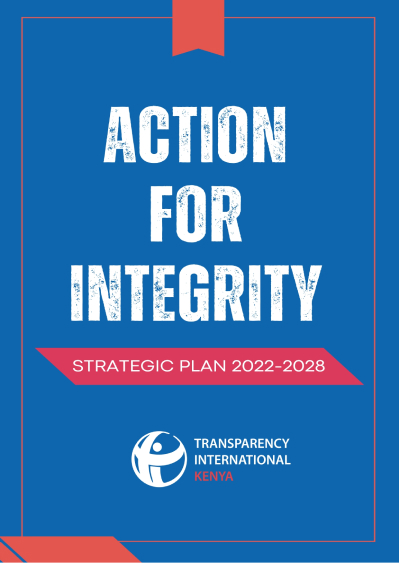By Mary Maneno:
“… We must take a comprehensive approach to Justice and the Rule of Law. It should encompass the entire criminal justice chain, not only police, but lawyers, prosecutors, judges and prison officers, as well as many issues beyond the criminal justice system. But a “one-size-fits-all” does not work. Local actors must be involved from the star.”- Kofi Annan, Secretary-General of the United Nations[1]
The late Kofi Annas’s sentiments is a manifestation that while the formal justice systems are equally crucial, a case for strengthening the informal justice systems for the benefit of disputes, and in this context, land disputes, ought to be exploited.
Human beings are social by nature and thrive best in togetherness. We are meant to interact and co-exist but not exist in isolation. As social beings that do co-exist in their daily lives, disagreements and conflicts are bound to arise from time to time. The need to balance peaceful co-existence while appreciating intrinsic human nature is what society should recognize as harmony.
Given our different preferences as a society, dispute resolution mechanisms also vary to cater for these different preferences. However, the courts often remain passive on acknowledging alternative dispute resolution mechanisms, partially because a judicial system that would rather be coercive would go against the very essence of a free and democratic society. It will bind individuals to a path they would rather not take. That is why courts only act on a matter taken before them and has no authority whatsoever to usurp jurisdiction in every matter. In the long run, this has allowed citizens from time to time to choose a dispute resolution mechanism that best caters for their needs as individuals. However, in making this choice, very few citizens settle for an out-of-court settlement.
Traditional Dispute Resolution Mechanisms (TDRMs), despite being acknowledged in Article 159 (2) (c) of the constitution, remain less utilized in solving land-related disputes.
Traditionally, culture determined how disputes were solved among various communities. Customary law has since played a major role in maintaining peace and should not be forgotten altogether even as we embrace modernism. The Constitution of Kenya, in its Article 11(1) recognizes the role of culture as a major building block in setting the foundation of our nation.
The Constitutional preamble further prides on cultural diversity as one of the major flagships that drive the unity of our nation. Why then can’t our society embrace and develop customary law in its totality? The cross-cutting and long-existing land disputes largely need the intervention of customary law, one that is used within the ambits of constitutional restrictions. A focus on the formal and legal land reforms without appreciating the crucial role of culture cannot serve as a solution in isolation.
Can legal reforms and formalism be a solution to the historical and cultural land processes practiced long before independence? While this could be true in light of oppressive customary land practices, the same cannot be firmly confirmed when faced with land titling and ownership questions.
Take the case of women denied the right to own property which has long been solved by legal reforms. However, following from the same concept, explaining to an individual with no title, who has stayed on a piece of land customarily allocated to them for years that they are not the legal owners of the land in the absence of a title deed becomes a challenge. Should this be the position? In Kenya, the person with the land title remains the legal owner of land. This legal ownership is undefeated with very few exceptions. However, customs are not one of the defeating factors. If this remains the position, are we solving land disputes or creating more land conflicts? How then do we reconcile customs and legalism to serve the interests of both parties? Should legalism be taken to be superior in such cases? Where then is the place of customary law in tackling land problems? Is written law superior to it? Practice confirms this hierarchy but a relook is of necessity to strengthen the role played by the traditional dispute resolution mechanisms since they are better placed to handle historical land disputes.
Each time I am faced with a land question arising as a result of our historical customary land practices, these questions cross my mind. Further interaction with the local community during Transparency International Kenya’s Advocacy & Legal Advice Centres (ALAC) outreaches, confirms my fears. The legal reforms in the land sector came in good light but not every person sees the benefits. A community of individuals that have stayed on a piece of land for years without a title, will confirm this position. All their hope is lost, all they got is to resort to conflicts and tribal clashes.
The Kenyan coast is a region marred with major land conflicts that can be traced back to historical injustices. Owing to the unique challenges faced in the region, recent land reforms are yet to conclusively solve the coastal land questions. An interaction with the locals in Kwale County brings out several tenacious issues, including the ownership of land without titles, absentee landlords, and the existence of squatters; all of which are partially resolved. It is time to embrace in entirety the traditional dispute resolution mechanism, only then, will Kenya win the war on land disputes.
[1] Secretary-General’s remarks to the Ministerial Meeting of the Security Council on Justice and the Rule of Law: The United Nations Role Available at https://www.un.org/sg/en/content/sg/statement/2003-09-24/secretary-generals-remarks-ministerial-meeting-security-council (Last accessed on 10th March 2021)


